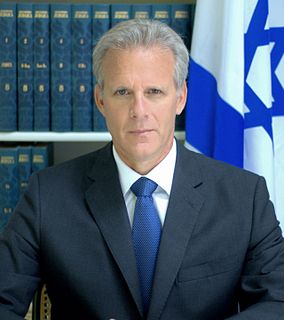A Quote by Huda Kattan
Being from the Middle East paired with my upbringing in the United States had pretty polarising effects on the way I perceive beauty.
Quote Topics
Related Quotes
The United States ... has been proud of its association with the State of Israel. We shall continue to stand with Israel. We are committed to Israel's survival and security. The United States for a quarter of a century has had an excellent relationship with the State of Israel. We have cooperated in many, many fields - in your security, in the well-being of the Middle East, and in leading what we all hope is a lasting peace throughout the world.
I believe that the Iraqis have an opportunity now, without Saddam Hussein there, to build the first multiconfessional Arab democracy in the Middle East. And that will make for a different kind of Middle East. And these things take time. History has a long arc, not a short one. And there are going to be ups and downs, and it is going to take patience by the United States and by Iraq's neighbors to help the Iraqis to do that. But if they succeed, it'll transform the Middle East, and that's worth doing.
I don't believe in the theory that the United States is reducing its presence in the Middle East. Quite the contrary, in the Gulf, we see an increase in American military presence, as well as an increase in American investments. The argument is more accurate when one says America is focusing more attention to the Far East. But I don't believe it comes at the expense of the Middle East.
The United States has kept the peace through our alliances. Donald Trump wants to tear up our alliances. I think it makes the world safer and, frankly, it makes the United States safer. I would work with our allies in Asia, in Europe, in the Middle East, and elsewhere. That's the only way we're going to be able to keep the peace.
As these potential adversaries grow their missile programs, U.S. military facilities in Asia and the Middle East, as well as our allies, are increasingly in range with the United States homeland, and we are really absolutely and potentially being threatened. And within two years, we will absolutely have a real threat. They'll be able to reach us so easily the way it's going right now.



































